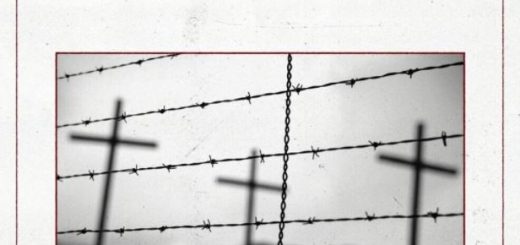Chelsea by Phoebe Bridgers Lyrics Meaning – Decoding the Intimate Whispers of Solitude and Connection
Lyrics
You sure know how to ride a train
Your revolution is a deathbed
And the music is your maid
When someone comes a-knockin’
With a needle on a tray
Only your lonesome lies beside you
For you told me not to stay
You are somebody’s baby
Some mother held you near
No, it’s not important
They’re just pretty words, my dear
There is no distraction
That can make me disappear
No, there’s nothin’ that won’t remind you
I will always be right here
And you spit the blood back
Spit the blood back, baby
I’m amazed that you’re alright
Oh, so long, prison boy
I won’t be home with you tonight
We’re both very sick
Our muscles all worn down
It’s as if we are one-hundred
Know I won’t still be around
Because I’ve fallen, yes, I’ve fallen
Right into the love I’ve found
Long before I reach one-hundred
I’ll have fallen to the ground
And for generations
They’ll romance us, make us more
Or much less than ever was before
The Chelsea and the floor
Make us stand before the masses
Like two speakers for the poor
When there was no revolution
Nothin’ we were fightin’ for
And you spit the blood back
Spit the blood back, baby
I’m amazed that you’re alright
Oh, so long, prison boy
I won’t be home, I won’t be home
I won’t be home with you tonight
And you can call the service bell
When we stay at the Chelsea Hotel
And I’ll stay out of my own hell
Oh, so long, prison boy
I won’t be home, I won’t be home
I won’t be home with you tonight
(Tonight)
Phoebe Bridgers, known for her evocative storytelling and ethereal folk soundscapes, has a unique way of weaving personal reflection with universal truth. Her song ‘Chelsea’ is no exception, offering listeners a delicate tapestry of emotion and experience, tender yet haunting in its execution.
As we dissect the poignant lyrics of ‘Chelsea,’ it becomes clear that this is more than just a melody; it is a profound narrative that encapsulates the intertwined journey of isolation, the inevitable passage of time, and the innate human desire for connection.
The Train Ride of Existence: A Journey of Chemical Imbalance and Revolution
The opening lines of ‘Chelsea’ plunge us into a metaphorical train ride – an emblem of the relentless forward motion of life. Bridgers masterfully contrasts the chemical imbalance, a term often used to describe mental health struggles, with the poignant image of a revolution. It is no ordinary upheaval; it is the protest we stage within ourselves, the fight between what we are and what we wish to become.
Here, the reference to a deathbed revolution suggests a recognition of mortality and the futility of our personal battles, which Bridgers juxtaposes with the role of music – a faithful companion, a ‘maid’ to this internal war. This particular train ride is not shared; it is ridden alone, accompanied only by the haunting resonance of personal demons and the ceaseless music playing in the background of existence.
Unraveling the Tug of War Between Presence and Absence
Bridgers isn’t just singing about loss; she’s exploring the relentless pull between the tangible and the intangible. The lines ‘You are somebody’s baby / Some mother held you near’ ground the listener in the universal truth of origin, of being loved and cradled. Yet, the dismissal of these being ‘just pretty words’ acknowledges the harsh realization that past warmth can sometimes do little to combat the coldness of present solitude.
Despite the song’s acknowledgment of isolation, there’s a resolute presence that Bridgers claims, her vow to be ‘right here.’ It’s a testament to the constancy of memory and emotional attachment. No matter the distractions or distances, the protagonist is ever-present, a ghostly fixture in the life of the song’s subject.
Behind the Veil: The Song’s Hidden Meaning
Peering behind the curtain of ‘Chelsea,’ we might find ourselves confronting the specter of addiction and its isolating effects. As Bridgers sings about someone ‘spit(ing) the blood back,’ we’re forced to contemplate the gritty realities of healing and relapse, and the impression of being trapped within one’s own body – likened to a prison.
The portrayal of this ‘prison boy’ who won’t be accompanied through the night offers a harrowing glimpse into the loneliness of recovery and the solitary march towards redemption. It’s a raw acknowledgment that, sometimes, love and support must be meted out from a distance for self-preservation.
Decades that Echo: Musings on Mortality and Legacy
A sense of weary recognition imbues the verse describing ‘both very sick’ bodies, drawn out by life’s relentless toll. Bridgers speaks to the universality of human fragility. The song paints a picture of two people, unified by their worn-down state, confronting their mortality with an understanding that both time and love have their ultimate limits.
In imagining the future, ‘Chelsea’ contemplates how stories are passed down, how lovers and fighters alike might be romanticized ‘for generations.’ There’s a bittersweet nod to the idea that even when the revolution is not apparent, even when there’s no clear cause for which to battle, our very existence can become its own message, representative of an era or a sentiment.
Lingering Lines: ‘Chelsea’ and the Legacy of a Haunting Refrain
Phoebe Bridgers has a distinct talent for crafting lines that resonate with the soul, and ‘Chelsea’ has its share of them. The repeated line ‘Oh, so long, prison boy / I won’t be home with you tonight,’ elevates the song into an anthem of bittersweet departure. It’s a promise to move forward, yet one that acknowledges the inevitable shadows trailing behind.
The poignant conclusion, with the Chelsea Hotel serving as both a literal and metaphorical backdrop for a journey of self-reflection and the pursuit of peace, caps off the song with an introspective tranquility. Bridgers offers a delicate portrait of finding solace in one’s own company, a necessary step in the dance between interdependence and independence.








